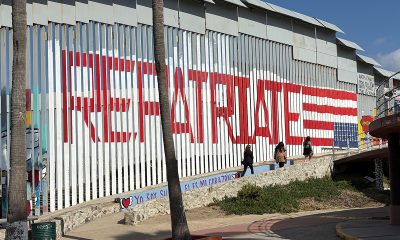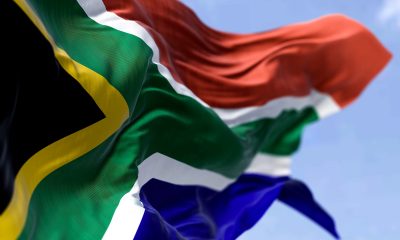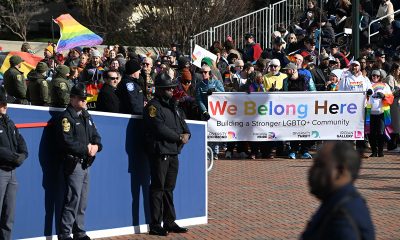South Africa
Lesbian couple murdered in South Africa
Nombulelo Thandathina Bixa and Minenhle Ngcobo killed on Aug. 27
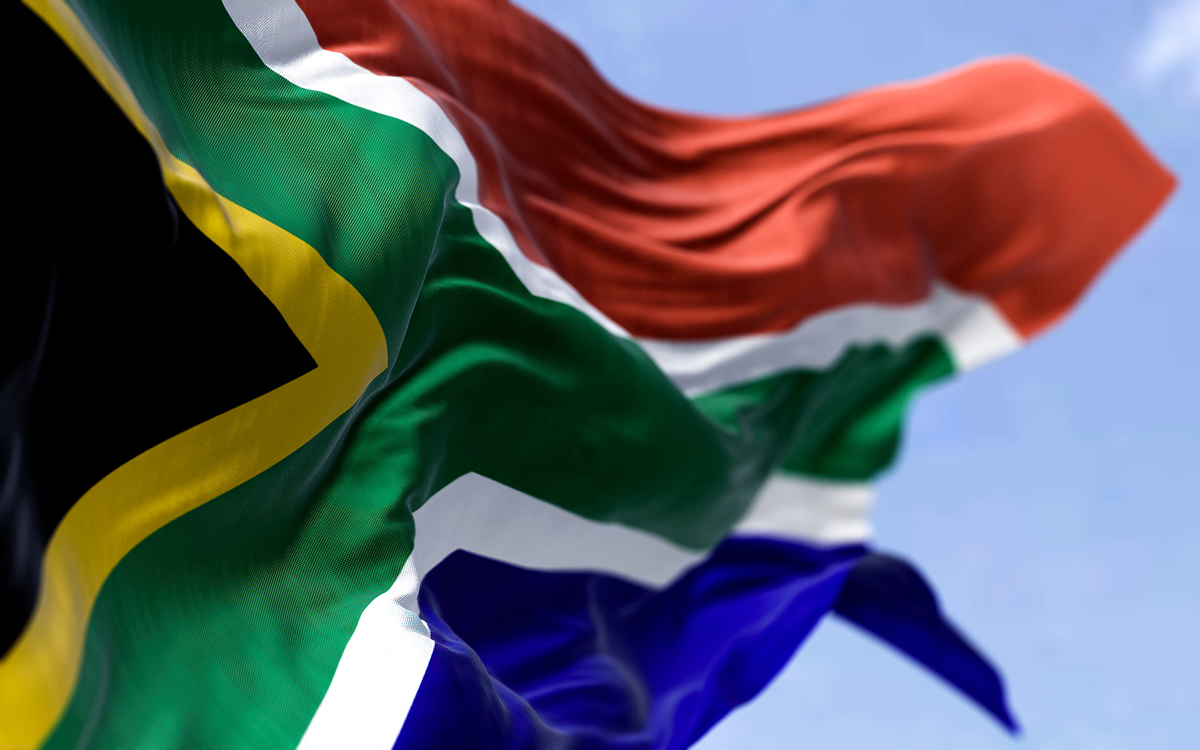
South African LGBTQ organizations have condemned the tragic murder of a lesbian couple in Dambuza near Pietermaritzburg on Aug. 27.
Reports indicate the couple — Nombulelo Thandathina Bixa, 28, and Minenhle Ngcobo, 22, — were shot dead by Ngcobo’s ex-boyfriend who was reportedly not happy with her recent relationship with Bixa.
Bixa was laid to rest on Sept. 5. Ngcobo was buried on Sunday.
ILORA, an LGBTQ rights organization, says the couple’s murder has left their families, friends, and the broader community in profound grief.
“We stand in solidarity with all those who are mourning and call for justice for our fallen siblings,” said ILORA. “Together, we must continue to fight against the violence and hatred that threaten our lives and communities.”
Uthingo Network, another LGBTQ rights organization, said the couple’s death was a horrific incident that could have been averted, noting Ngcobo’s ex-boyfriend had been harassing them and ignored a protection order.
“This brutal act highlights the deep-seated homophobia and violence that persists in South Africa, especially in rural areas where LGBTI+ individuals are often marginalized and under protected,” said the group in a statement. “The systemic lack of awareness and understanding in these communities contributes to an environment where such hate crimes can occur frequently and with little consequence.”
“The fear of further victimization often silences those who seek justice, perpetuating a dangerous cycle of violence and impunity,” added the Uthingo Network.
The Uthingo Network also said it is calling for urgent and comprehensive action at all levels — including more vigorous enforcement of hate crime laws, training for police officers on LGBTQ issues, and community-based education programs to challenge harmful prejudices.
“Uthingo Network urges the government, civil society, and individuals to stand together against all forms of hatred and violence, working towards a future where no one is targeted for who they are or who they love,” said the group.
Gay man killed outside his home on Aug. 18
Xolani Xaka, a 32-year-old gay man from Gqeberha, was murdered outside his home on Aug. 18.
A family representative said Xaka heard noises at the gate of the home he shared with his uncle. He went to investigate, and three men confronted him, repeatedly stabbing him until he was dead.
The three men fled.
“LGBTIQ+ people should not have to live in fear of discrimination and deadly violence simply because of who they love or their gender identity,” said OUT Civil Society Engagement Officer Sibonelo Ncanana. “We call on the authorities to act with urgency to arrest and prosecute the men alleged to have callously taken another queer life.”
Ncanana said no arrests have been made, even though authorities continue to investigate Xaka’s murder. A motive remains unclear.
Crimes against LGBTQ South Africans remain prevalent, even though the country is the only one in Africa that constitutionally recognizes rights based on sexual orientation and gender identity, and President Cyril Ramaphosa in May signed the Preventing and Combating of Hate Crimes and Hate Speech Act. Activists say homophobic and transphobic religious and cultural beliefs contribute to continued attacks against LGBTQ South Africans.
Steve Letsike, a lesbian who won a seat in the South African National Assembly earlier this year, on June 30 became the country’s deputy minister of women, youth and people with disabilities. Activists are hopeful she will work to raise awareness for the need to protect LGBTQ South Africans.

South Africa
Transgender inmate sues South Africa prison officials
Nthabiseng Mokoena alleges mistreatment at Johannesburg Correctional Center

South Africa’s transgender community is eagerly anticipating a court ruling that could change their lives.
The Equality Court at the Gauteng High Court in Johannesburg on Sept. 12 reserved judgment for a case brought by Nthabiseng Mokoena, a trans woman who is an inmate at the Johannesburg Correctional Center (Sun City Prison) against the Department of Correctional Services and other officials.
According to Mokoena, who is being represented by Lawyers for Human Rights and others, the DCS commits systemic discrimination against trans inmates by refusing to recognize their gender identity and denying them basic gender-affirming rights.
Mokoena also argued the DCS has violated her rights by refusing her chosen name and pronouns, not allowing her to wear clothing and use cosmetics and toiletries that correspond with her gender expression, bullying her, and denying her gender-affirming healthcare.
“The transphobia within DCS’s senior management is undeniable,” said Mokoena. “There’s a clear difference in how heterosexual inmates are treated compared to members of the LGBTQI+ community. The LGBTQI+ community is often treated as less than human.”
Mokoena also said there is no recourse for her and other trans people when they are victimized; they are rather punished when they try to stand up for themselves.
“When we are hurt or attacked, no one speaks up or does anything to help,” said Mokoena. “Those who harm the LGBTQI community are never held responsible. What is worse, when we try to defend ourselves or speak out about the unfair treatment, we are the ones who get punished.”
Mokoena as a result wants the court to order the defendants to provide her with gender-affirming healthcare, assistance in legally changing her name and gender marker, and to be housed in a single cell or with other inmates who share her gender identity.
Letlhogonolo Mokgoroane, a nonbinary lawyer who represents Mokoena, said gender-affirming healthcare is recognized by medical professionals worldwide as essential healthcare.
“Gender-affirming care is not elective or optional, it is life-saving,” said Mokgoroane. “Denial of such care amounts to cruel and inhumane treatment, which is incompatible with the values enshrined in our constitution and international human rights standard. Trans rights are human rights.”
Access Chapter 2, a local LGBTQ organization which filed an amicus brief in support of Mokoena in the Equality Court, said it stands with her and all trans people who face systematic discrimination.
“Our submissions emphasized that gender-affirming healthcare is an essential component of primary healthcare, not an elective treatment. Denying access to gender-affirming healthcare violates the constitutional rights of transgender people to equality, dignity, and healthcare, especially those in detention facilities,” said Access Chapter 2.
Thabsie Mabezane, acting media and programs director at Lebo Basadi Foundation, an LGBTQ rights organization, said trans issues are complex and multifaceted and require a comprehensive approach that addresses legal discrimination, societal stigma, economic oppression, and healthcare access.
“Socially transitioning individuals who choose to live as their preferred gender without medical intervention, face unique challenges,” noted Mabezane. “They often lack access to essential services, including healthcare and social support, and may be excluded from projects aimed at uplifting LGBTQ+ individuals, hence the need to promote inclusivity, supporting advocacy efforts, and addressing the specific needs of transgender individuals.”
Even though South Africa has made strides in recognizing and advancing the rights of trans people, systematic and deeply-rooted transphobia in the country make it difficult for them to live openly and access gender-affirming health care.

South Africa National Assembly Speaker Thoko Didiza on June 17 swore in lesbian feminist Palomino Jama as a new MP.
Jama joins other LGBTQ legislators — including Public Works and Infrastructure Minister Dean Macpherson; Forestry, Fisheries and the Environment Minister Dion George; and Deputy Women, Youth, and Persons with Disabilities Minister, Steve Letsike.
Jama said she will work hard and excel as MP.
“What a great moment to be alive. Thank you youth of 1976, thank you Simon Nkoli, Phumi Mthetwa, Paddy Nhlaphos, Vanessa Ludwig, and others for what you did for the LGBTI people in the 80s and 90s. Lastly, for the fierce fist of the Jamas to always hit where it matters for the people of this country,” said Letsike.
Embrace Diversity Movement, a local LGBTQ organization, said Jama’s inauguration came at an appropriate time, during Pride month.
“Her swearing-in took place during a month of profound significance in June, which marks both international Pride Month and Youth Month in South Africa,” said the group. “Palomino is a seasoned queer activist and dedicated community builder with a distinguished record of leadership and service.”
“The EDM proudly supports Palomino in her deployment to parliament, her presence meaningfully advances youth and queer representation in public office,” added the Embrace Diversity Movement. “We are confident that she will serve the people of South Africa with integrity, courage, and distinction.”
South Africa is the only African country that constitutionally upholds LGBTQ rights. There are, however, still myriad challenges the LGBTQ community faces on a daily basis that range from physical attacks to online abuse.
Letsike in May faced a barrage of online attacks after she released a scathing statement against popular podcaster Macgyver “MacG” Mukwevho, who during a podcast episode in April insinuated that the reason behind popular socialite Minnie Dlamini’s “unsuccessful” relationships were probably due to the bad odor from her genitals.
Letsike, who viewed MacG’s comments as offensive, called for the podcaster to be summoned before parliament’s Portfolio Committee on Women, Youth, and Persons with Disabilities and criticized the local television station that aired the podcast.
X users and other social media subscribers bombarded Letsike with anti-lesbian comments. She, however, was unphased.
Letsike continues to face anti-lesbian comments, even though MacG apologized and the television station on which his podcast had aired cancelled its contract with him.
South Africa
South African activists demand action to stop anti-LGBTQ violence
Country’s first gay imam murdered in February
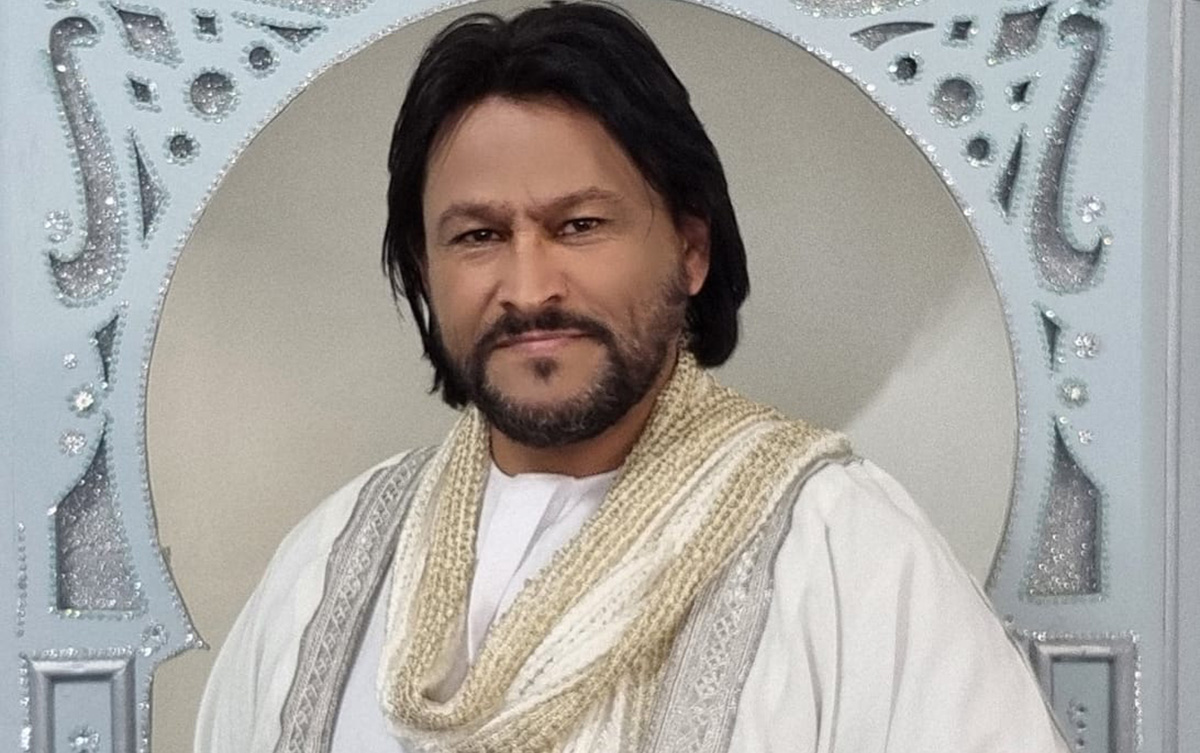
Continued attacks of LGBTQ South Africans are raising serious concerns about the community’s safety and well-being.
President Cyril Ramaphosa in May 2024 signed the Preventing and Combating of Hate Crimes and Hate Speech Bill into law that, among other things, has legal protections for LGBTQ South Africans who suffer physical, verbal, and emotional violence. Statistics from the first and second quarters of 2025 have painted a grim picture.
Muhsin Hendricks, the country’s first openly gay imam, in February was shot dead in Gqeberha, in a suspected homophobic attack. Authorities in April found the body of Linten Jutzen, a gay crossdresser, in an open field between an elementary school and a tennis court in Cape Town.
A World Economic Forum survey on attitudes towards homosexuality and gender non-conformity in South Africa that Marchant Van Der Schyf conducted earlier this year found that even though 51 percent of South Africans believe gay people should have the same rights as their heterosexual counterparts, 72 percent of them feel same-sex sexual activity is morally wrong. The survey also notes 44 percent of LGBTQ respondents said they experienced bullying, verbal and sexual discrimination, and physical violence in their everyday lives because of their sexual orientation.
Van Der Schyf said many attacks occur in the country’s metropolitan areas, particularly Cape Town, Durban, and Johannesburg.
“Victims are often lured to either the perpetrator’s indicated residence or an out-of-home area under the appearance of a meet-up,” said Van Der Schyf. “The nature of the attacks range from strangulation and beatings to kidnapping and blackmail with some victims being filmed naked or held for ransom.”
The Youth Policy Committee’s Gender Working Group notes South Africa is the first country to constitutionally protect against discrimination based on sexual orientation and the fifth nation in the world to extend marriage rights to same-sex couples. A disparity, however, still exists between legal protections and LGBTQ people’s lived experiences.
“After more than 20 years of democracy, our communities continue to wake up to the stench of grief, mutilation, violation, and oppression,” said the Youth Policy Committee. “Like all human beings, queer individuals are members of schooling communities, church groups, and society at large, therefore, anything that affects them should affect everyone else within those communities.”
The Youth Policy Committee also said religious and cultural leaders should do more to combat anti-LGBTQ rhetoric.
“Religious institutions seem to perpetuate the hate crimes experienced by queer individuals,” said the group. “In extreme cases, religious leaders have advocated for killings and hateful crimes to be committed against those in the queer community. South Africa’s highly respected spiritual guides, sangomas, are also joining the fight against queer killings and acts of transphobia and homophobia.”
“The LGBTQIA+ community is raising their voice and they need to be supported because they add a unique color to our rainbow nation,” it added.
Steve Letsike, the government’s deputy minister for women, youth, and persons with disabilities, in marking the International Day Against Homophobia, Biphobia, and Transphobia on May 17 noted Ramaphosa’s administration has enacted legislative framework that protects the LGBTQ community. Letsike, however, stressed the government still needs to ensure its implementation.
“We have passed these policies and we need to make sure that they are implemented fully and with urgency, so that (LGBTQ) persons can self-determine and also have autonomy without any abusive requirements,” said Letsike. “We need families, faith leaders, traditional authorities, and communities to rise together against hate. Our constitution must remain respected.”
Siphokazi Dlamini, a social justice activist, said LGBTQ rights should be respected, as enshrined in the constitution.
“It is terrible to even imagine that they face discrimination despite the fact that this has been addressed numerous times,” said Dlamini. “How are they different from us? Is a question I frequently ask people or why should they live in fear just because we don’t like the way they are and their feelings? However, I would get no response.”
Dlamini added people still live in fear of being judged, raped, or killed simply because of who they are.
“What needs to be addressed to is what freedom means,” said Dlamini. “Freedom means to have the power to be able to do anything that you want but if it doesn’t hurt other people’s feelings while doing it. There is freedom of speech, freedom from discrimination, freedom of expression, of thought, of choice, of religion, of association, and these needs to be practiced. It is time to take such issues seriously in order to promote equality and peace among our people, and those who do not follow these rules should be taken into custody.”
Van Der Schyf also said LGBTQ South Africans should have a place, such as an inquiry commission, that allows them to talk about the trauma they have suffered and how it influences their distrust of the government.
